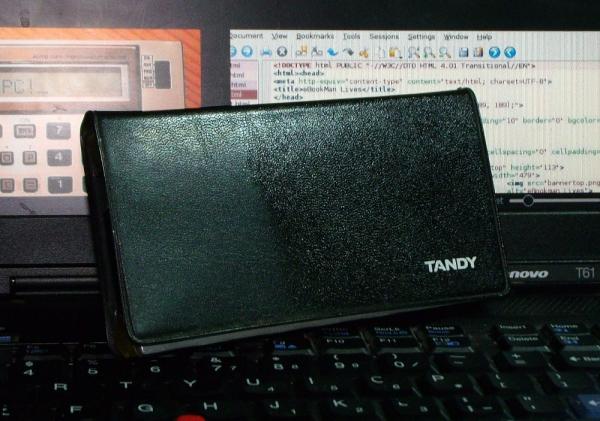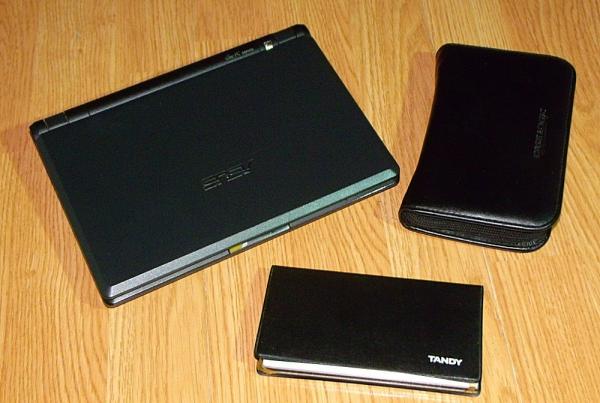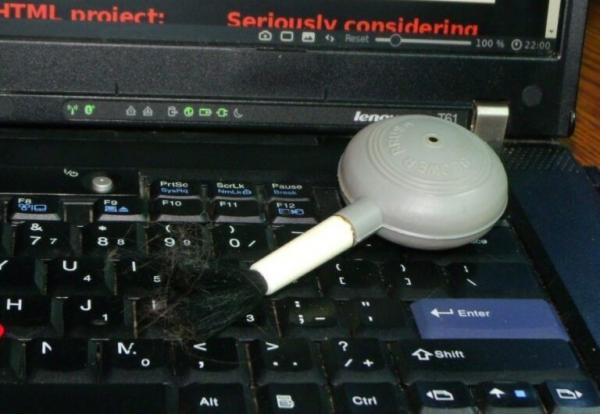For someone like me, who likes to use vintage technology and electronic gadgets, keeping them in good shape and operational is a top priority. I thought I’d share some of the techniques I use to keep my old tech. in tip-top condition.
Most of the high tech gadgets from the 70s, 80s and 90s is made of plastic, vinyl, and other man-made materials like this. They’re great for making these devices light and rugged, but they also fade, dry out, and become brittle as the years go on. This seems to happen at an accelerate rate, out here on the dry Saskatchewan prairies. I’ve had a few sets of soft foamy head phones totally disintegrate on me in, just from sitting unattended for a few years. But, I’ve been able to save much of my old electronics from drying up and turning to dust with the use of mineral oil.
Every few months, I take a small dab of mineral oil and give my electronics with plastic housings a nice rub-down with a micro fibre cloth. I then let the mineral oil sit for a bit, then take another dry micro fibre cloth and wipe off the excess. I’ve found that the mineral oil will help keep the plastics, vinyl and rubbery casings you typically find housing your electronics from drying out, cracking and fading.
For example, look at the case for my Tandy Pocket PC-3 here (which I’ve had since 1985). Can you tell which part of the case hasn’t gotten its latest application of mineral oil?
Plastics like this notoriously become brittle and split along the areas that are supposed to fold or bend. But just by applying mineral oil a few times a year, I’ve been able to keep this case looking pretty good and functional.
I also do this for the soft vinyl on my eBookMan protective case, as well as my EeePC 701s and other netbook/laptops we use in our household. Of course, I avoid getting mineral oil on the screens. For those, I clean them with a mixture of vinegar and distilled water. But apart from things like screens, or anything made from glass or metal, I haven’t come across any plastics that have been damaged from the use of mineral oil. I think the trick is to wipe off any excess oil, after you’ve let it sit and absorb into the plastic for a little while. If you don’t wipe off the excess, there is a tendency for the oil to attract dirt.
To get into the stubborn, hard to reach places (like the space between the keys of a keyboard), many people will use compressed air. No doubt that compressed air will get a lot of dirt and debris out from between the keys, but it doesn’t get everything; like pet hair.
Even after using compressed air, I can still find myself taking out a lot of extra debris by using a simple “blower brush”, or a camera lens brush. You used to be able to get these at any camera shop, when we used to have such businesses to shop at. Now, you’ll most likely find them on Amazon.
Because the blower brush is designed for the gentle job of brushing off camera lenses, it’s soft bristles can easily get in to those tight spaces of a laptop’s keyboard. The way I use it is is by brushing a particular area, like the cursor keys, vigorously over and over again. After a little while of brushing, the small bits of debris and fine hairs (from one of our two cats) gradually gets worked up to the surface and can be plucked easily off of the brush.
Although I’ve never had an issue with static electricity or anything like that myself, I make sure the laptop or other devices are powered off when I use the brush to clean…. just in case. I also keep some cotton swabs on hand and use them, along with some mineral oil, if there’s any rubbed in dirt I need to address.
I know others suggest using isopropyl alcohol for cleaning, and is great for use on the electronic components themselves. But, when it comes to the plastic housings and such, I like to use something more gentle. Besides, cleaning the outside cases would typically be done more than the cleaning of the electronic innards. I just think that frequently cleaning with isopropyl alcohol would tend to dry out and damage the plastic over the long run.
I’m not saying that my cleaning and maintenance practices are the best, but I have had these electronics for many years and, for the most part, they still look and function great. I hope you’ve found this article useful in some way.
[tag]pc-3, eeepc, ebookman, how-to[/tag]



